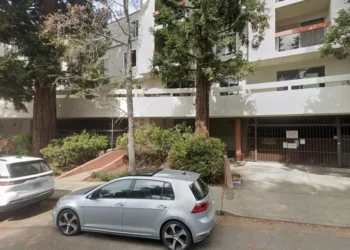Deciphering the Mystery of the Working-Class Voter: A View From Britain
In recent years, the term “working-class” has become a hot topic in British politics. From Brexit to the rise of populist movements, the working-class voter has been at the center of many political debates. But what exactly does “working-class” mean in today’s society? And how has its definition evolved over time?
Traditionally, the working-class has been defined as those who work in manual or blue-collar jobs, such as factory workers, miners, and construction workers. They were often seen as the backbone of the economy, working hard to provide for their families and communities. However, with the decline of traditional industries and the rise of the service sector, the working-class has undergone a significant transformation.
Today, the working-class is much more diverse and complex than ever before. It includes not only those in manual labor jobs, but also those in low-paying service jobs, such as retail and hospitality. It also includes those who are unemployed or underemployed, struggling to make ends meet. In fact, according to a report by the Joseph Rowntree Foundation, nearly half of all working-age adults in poverty in the UK are from working households.
This shift in the working-class has also brought about a change in their political views and voting patterns. In the past, the working-class was seen as a stronghold for the Labour Party, with their policies focused on improving the lives of the working-class. However, in recent years, there has been a noticeable shift towards right-wing parties, such as the Conservative Party and UKIP. This has left many political analysts and experts scratching their heads, trying to decipher the mystery of the working-class voter.
One possible explanation for this shift is the growing sense of disillusionment and frustration among the working-class. Many feel that their voices are not being heard by the traditional political parties and that their concerns are being ignored. This has led to a sense of alienation and a desire for change, which has been capitalized on by populist movements.
Another factor that has contributed to the changing definition of the working-class is the rise of technology and globalization. With the advancement of technology, many traditional manual jobs have been replaced by machines, leading to a decline in the number of blue-collar workers. At the same time, globalization has led to the outsourcing of jobs to other countries, leaving many working-class individuals without job opportunities.
The changing definition of the working-class has also brought to light the issue of social mobility. In the past, it was believed that hard work and determination could lead to upward social mobility. However, with the increasing cost of living and the lack of well-paying jobs, many working-class individuals find themselves stuck in a cycle of poverty, unable to move up the social ladder.
So, how can we address the challenges faced by the working-class in today’s society? The first step is to acknowledge and understand the changing definition of the working-class. It is no longer a homogenous group, but a diverse and complex one. This means that policies and solutions need to be tailored to address the specific needs and concerns of different segments of the working-class.
Secondly, there needs to be a greater focus on social mobility and creating opportunities for upward mobility. This can be achieved through investing in education and training programs, as well as creating more well-paying jobs in different sectors.
Lastly, it is crucial for political parties to listen to the voices of the working-class and address their concerns. This means going beyond traditional party lines and truly understanding the issues that matter to the working-class. Only then can we bridge the gap between the working-class and the political establishment.
In conclusion, the working-class in Britain today is a far cry from what it used to be. It is a diverse and complex group, facing unique challenges and struggles. As we continue to navigate through these uncertain times, it is important to remember that the working-class is not just a political buzzword, but a group of individuals with hopes, dreams, and aspirations. It is time to decipher the mystery of the working-class voter and give them the attention and support they deserve.







